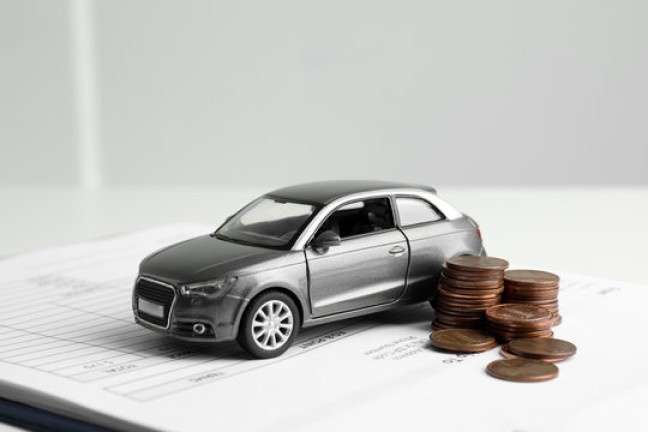When it comes to financing a car, the options can be overwhelming. One option that often stands out is a 12-month car finance plan. In this article, I will walk you through the ins and outs of 12-month car finance, giving you a clear understanding of how it works, the pros and cons, and whether it’s the right choice for you. With practical examples and calculations, I aim to make the concept easier to understand and help you make an informed decision.
Table of Contents
What is 12-Month Car Finance?
12-month car finance is a short-term loan agreement where you borrow money to buy a car and agree to repay the loan within 12 months. The loan is usually secured against the car, meaning the car acts as collateral. At the end of the 12 months, you either pay off the remaining balance or return the car. This type of loan typically comes with fixed monthly payments and a clear repayment schedule.
The key benefit of 12-month car finance is that it offers a fast way to pay off your car loan, making it ideal for those who want to own their car outright quickly. However, this comes with both advantages and challenges, which I will explain as we go along.
How Does 12-Month Car Finance Work?
The process of getting a 12-month car finance plan is fairly straightforward. Here’s a basic overview of how it works:
- Choosing a Car: The first step is deciding which car you’d like to purchase. The loan amount will depend on the price of the car, so it’s essential to stick to a budget.
- Applying for Finance: Once you’ve chosen a car, you apply for finance through a lender or a dealership that offers car loans. Lenders will typically require information about your credit score, income, and employment history to assess your ability to repay the loan.
- Loan Agreement: If your application is approved, the lender will offer you a loan agreement. This will include the loan amount, interest rate, and the duration of the loan—12 months in this case.
- Repayment: Throughout the 12-month period, you will make fixed monthly payments, usually via direct debit. These payments are calculated based on the loan amount, the interest rate, and the length of the loan.
- End of the Loan: Once the 12 months are over, you will either make a final payment to clear the loan, or you may have the option to return the car and settle the remaining balance, depending on the type of agreement you have.
The Advantages of 12-Month Car Finance
There are several benefits to choosing a 12-month car finance plan, particularly if you prefer to pay off your loan quickly. Here’s a breakdown of the main advantages:
- Quick Ownership: One of the biggest draws of 12-month car finance is that it allows you to pay off the car quickly. If you prefer to own your car outright without being tied to a long-term debt, this is a great option.
- Lower Interest Rates: Short-term loans like 12-month car finance generally come with lower interest rates compared to longer-term loans. This is because lenders consider short-term loans to be less risky.
- Clear End Date: With a 12-month car finance plan, you know exactly when you will finish paying off the car. There are no surprises or extended payment periods.
- Potential to Save Money: Since the loan term is shorter, you may end up paying less in interest overall. This is especially true if the interest rate is low.
The Disadvantages of 12-Month Car Finance
While 12-month car finance offers a range of benefits, it’s important to consider the drawbacks as well. Here’s a closer look at some of the challenges:
- Higher Monthly Payments: Since the loan is paid off in a short period of time, the monthly payments tend to be higher than those for longer-term loans. This could strain your monthly budget if you’re not prepared.
- Less Flexibility: A 12-month loan is less flexible than longer-term options. If your financial situation changes, it may be more difficult to adjust your payments or extend the term.
- Limited Car Choices: Depending on the loan amount you’re approved for, a 12-month finance plan may limit the types of cars you can afford. This is particularly true if you’re aiming for a high-end model, as the loan amount may not cover the full price.
- Higher Upfront Costs: In some cases, the lender may require a larger down payment, especially if you’re financing a used car. This can be an obstacle for some buyers.
Is 12-Month Car Finance Right for You?
Deciding whether 12-month car finance is right for you depends on several factors. Here’s what to consider:
- Your Budget: Can you comfortably afford the higher monthly payments? If your income is stable and you don’t mind paying more each month to clear the loan quickly, 12-month car finance could be an ideal option.
- Your Financial Goals: If you’re looking to pay off the car and be debt-free quickly, a 12-month plan aligns with that goal. However, if you’re not in a rush to clear your debt, you might want to consider a longer loan term.
- Your Credit Score: A good credit score is essential for securing favorable terms on a 12-month car finance plan. Lenders will look at your credit history to determine the interest rate and loan amount you’re eligible for.
Example of a 12-Month Car Finance Plan
Let’s take a look at an example to better understand how a 12-month car finance plan works. For simplicity, I’ll assume the following:
- Car price: £15,000
- Loan amount: £12,000 (after a £3,000 down payment)
- Interest rate: 4%
- Loan term: 12 months
Monthly Payment Calculation
To calculate the monthly payments, we can use a simple loan amortization formula. The formula to calculate monthly payments is:
M = P \times \frac{r(1 + r)^n}{(1 + r)^n - 1}Where:
- M is the monthly payment
- P is the loan principal (£12,000)
- r is the monthly interest rate (annual rate divided by 12)
- n is the number of payments (12 months)
Using the values above, the monthly payment works out to be approximately £1,022.80.
Total Repayment:
\text{Total} = 12 \times 1,022.80 = \pounds 12,273.60So, at the end of 12 months, the total amount repaid would be £12,273.60, which includes both the principal (£12,000) and the interest (£273.60).
Comparison with a Longer-Term Loan
Now, let’s compare this to a longer-term loan, say a 48-month loan. Let’s assume the same loan amount and interest rate but over a longer period.
Using the same formula, the monthly payment for a 48-month loan would be approximately £276.56. Over the term of the loan, the total repayment would be £13,276.48, which includes more interest over time but with lower monthly payments.
12-Month Loan vs. 48-Month Loan Comparison:
| Loan Term | Monthly Payment | Total Repayment | Interest Paid |
|---|---|---|---|
| 12 months | £1,022.80 | £12,273.60 | £273.60 |
| 48 months | £276.56 | £13,276.48 | £1,276.48 |
As shown in the table, while the 12-month loan has higher monthly payments, you pay significantly less interest overall. This is an essential consideration when deciding between different loan terms.
Conclusion
12-month car finance is an attractive option for those who want to pay off their car quickly and avoid long-term debt. It offers the advantage of fast ownership, lower interest rates, and a clear repayment plan. However, the higher monthly payments can be a challenge for some, so it’s important to assess your budget and financial goals before committing.
Ultimately, the decision to choose a 12-month car finance plan depends on your personal preferences, financial situation, and long-term plans. I hope this article has given you a clear understanding of what to expect and helped you make an informed decision.





